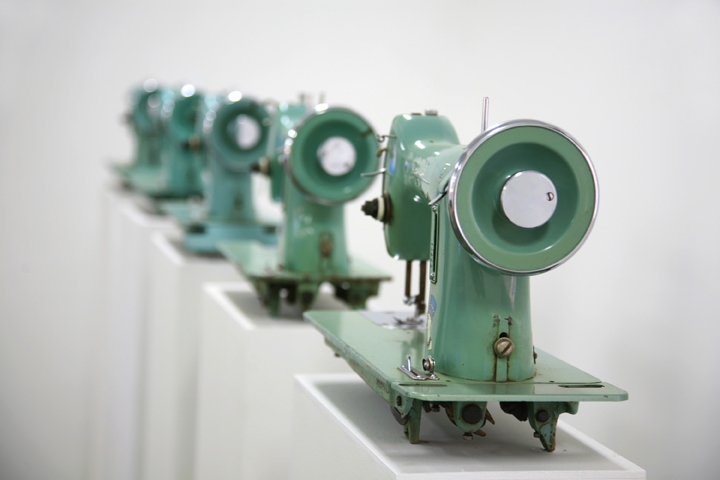Ala Younis’s artistic practice is engaged in the reinterpretation of inherited narratives. Her projects are research-based sociopolitical investigations, deeply explored in concurrence with personal experience. Through art, film and publication projects, Younis unfolds the conditions under which collective historical and political collapses can become personal ones. Her work reveals an obsession with production: for Beirut’s fifth Home Works Forum, in 2010, she cast and hand-painted a set of 2,500 soldiers representing the nine armies of the Middle East. A year later, she quintupled the piece into 12,265 Tin Soldiers (2011), produced and hand-painted in Istanbul for the 12th biennial. Concurrently she was developing a publication of contributions and found material on the region’s soldiers/fighters, to be finished by the end of this year.
The Tin Soldiers projects followed a series of works exploring industrial issues and the pale promises of Arab nationalism prevalent in Egypt under the Nasser regime. This began with her installation and film project Nefertiti (2008), in which she employed a particular model of discontinued Egyptian-made sewing machine as a metaphor for the disappointment surrounding the government’s effort to nationalise industry and emphasise Egyptian sovereignty. The sewing machine remains a nostalgic icon from the heyday of nationalistic sentiments. Younis explores archives in order to dig up the creation of sentiments such as these, and to reconstruct the conditions under which they arose.
Younis also works as a curator. A series of projects that she curated in 2011 (such as Momentarily Learning from Mega-Events, at Makan Art Space in Amman, and Out of Place, cocurated with Kasia Redzisz as a collaboration between London’s Tate Modern and Amman’s Darat al Funun) brought to light her clear focus on research in recent artistic practice, demonstrating a collective intellectual activism much needed for current situations and audiences. Younis’s projects suggest a continuum: they open from one story to another in a cyclical process of judging and not judging the conditions that create a state of being.
This article originally appeared in the March 2012 issue.
